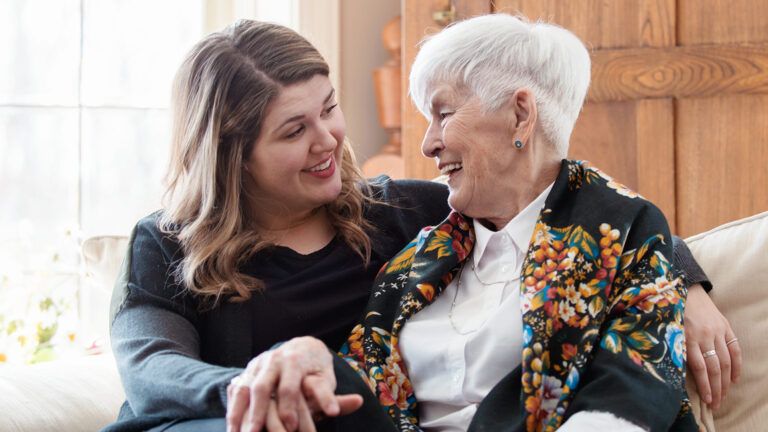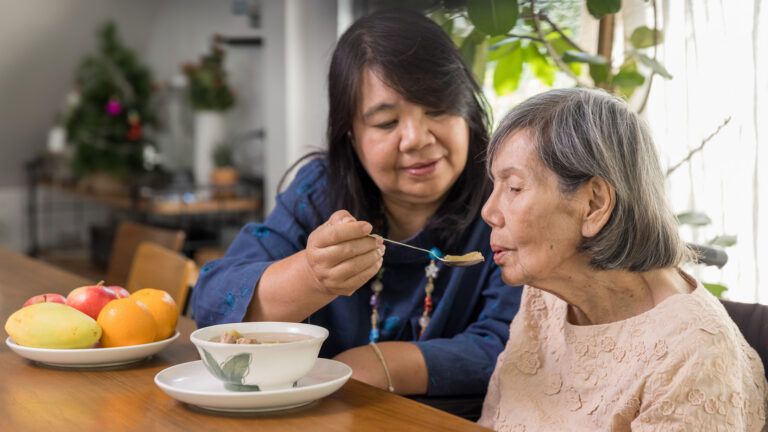Julie Hayes is the Content Manager at Benjamin Rose Institute on Aging.
It’s true to the point of cliché that older adults hold a special place in their hearts for their grandkids. This soft spot can sometimes be a blind spot, especially when it comes to an emergency situation that requires quick cash. If you have a loved one who meets this description, it’s important to keep an eye out for a form of fraud referred to as a “grandparent scam.” Under the scheme, fraudsters prey on this particular vulnerability of older adults by posing as their grandchildren, claiming to be in crisis and asking for money.
How does a grandparent scam work?
This form of fraud occurs when a scammer gets in touch with a grandparent via phone, text, snail mail or email, claiming to be his or her grandchild. Often, the fraudsters have gathered enough social media information to use the grandchild’s name and copy his or her patterns of speech.
The scammer who is posing as the grandchild will pretend to be in a crisis and in dire need of funds. Claims often include:
- “I’ve been arrested and I need cash for bail.”
- “I’ve been in a car crash,” or, “I’m in the ER.” The scammer asks for help paying for a rescue squad or hospital bills.
- “I was kidnapped and need ransom money,” or, “I was robbed.”
- “I’m stranded overseas and I need money to get back home.”
The fraudster goes on to ask for a money transfer via a wire transfer or gift card, and implores the older adult not to contact anyone else in the family about what’s happened, especially “Mom or Dad.” After that, the scammer may hand the phone over to another person who pretends to be an attorney, doctor or law enforcement officer to “verify” the story and make it sound more real.
To carry off this sort of scam, fraudsters often “spoof” or imitate a grandchild’s Caller ID or area code so that the number or ID isn’t unfamiliar to the grandparent they’re victimizing. The calls often come in at night to increase the likelihood that the older adult will be disoriented and caught off guard.
What steps can I take to protect my loved one from this scam?
Any grandparent can fall prey to this scheme, including your loved one, and it is more common than you may believe. From 2015 to early 2020, the Federal Trade Commission (FTC) reported over 91,000 cases of scam artists posing as relatives to defraud victims. Depending on the demands of the scammers, money lost by individual victims has ranged from a few hundred dollars to over $15,000.
If you’re concerned about your loved one being victimized in this way, you can take certain steps to prevent it from happening. A good start is to explain the scam to your loved one and then to be on notice for suspicious calls along the lines described above. You may want to show your loved one news stories about actual grandparent scams to show how they’ve played out.
You may also consider taking the following steps:
- Pick a family password and give it to your loved one’s grandkids. In the event of an actual emergency, they can use the password to let your loved one know the crisis is real. Often, fraudsters will immediately end the call when they’re asked for a family password.
- Make a list of questions your loved one could ask a caller that only the particular grandchild would have a correct response to. Take care to pick questions that wouldn’t be easily answerable from social media or other internet information.
- If your loved one and other family members use social media, urge them to set their pages and profiles to private. Doing so makes it difficult for fraudsters to gather the information necessary to make the fraud seem real.
- Tell your loved one to contact you or another trusted person if a call like this comes in. You may be able to help verify or contradict the caller’s claims.
- Tell your loved one to hang up and call back using the grandchild’s saved contact information instead of the number that was used to make the call.
- Encourage your loved one to remain calm. Panicking makes it easier to miss tip-offs such as a caller who has an unfamiliar voice or accent, or who refers to your loved one as “grandma” or “grandpa” rather than names you actually use like “nana” or “papa.”
Where can I turn if my loved one has been victimized in this way?
If your loved one has fallen prey to a grandparent scam, he or she might feel ashamed and be hesitant to discuss or report it. Gently point out that a report can assist authorities in catching the perpetrators. To report this sort of scam, you can:
- Contact your loved one’s local police precinct or your state’s attorney general.
- File a complaint with the Federal Communications Commission (FCC) or FTC.
- Get in touch with a company your loved one may have used to transfer funds, like Western Union. You may be able to cancel a transaction before it’s completed.




